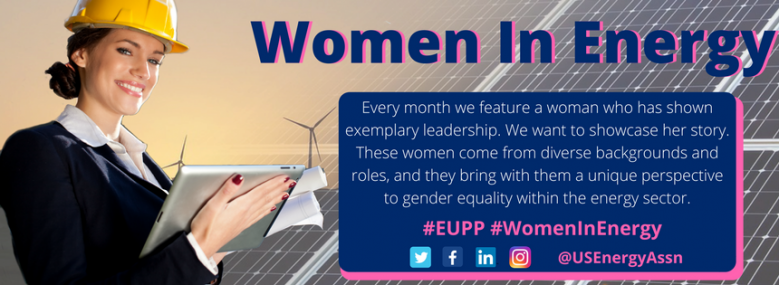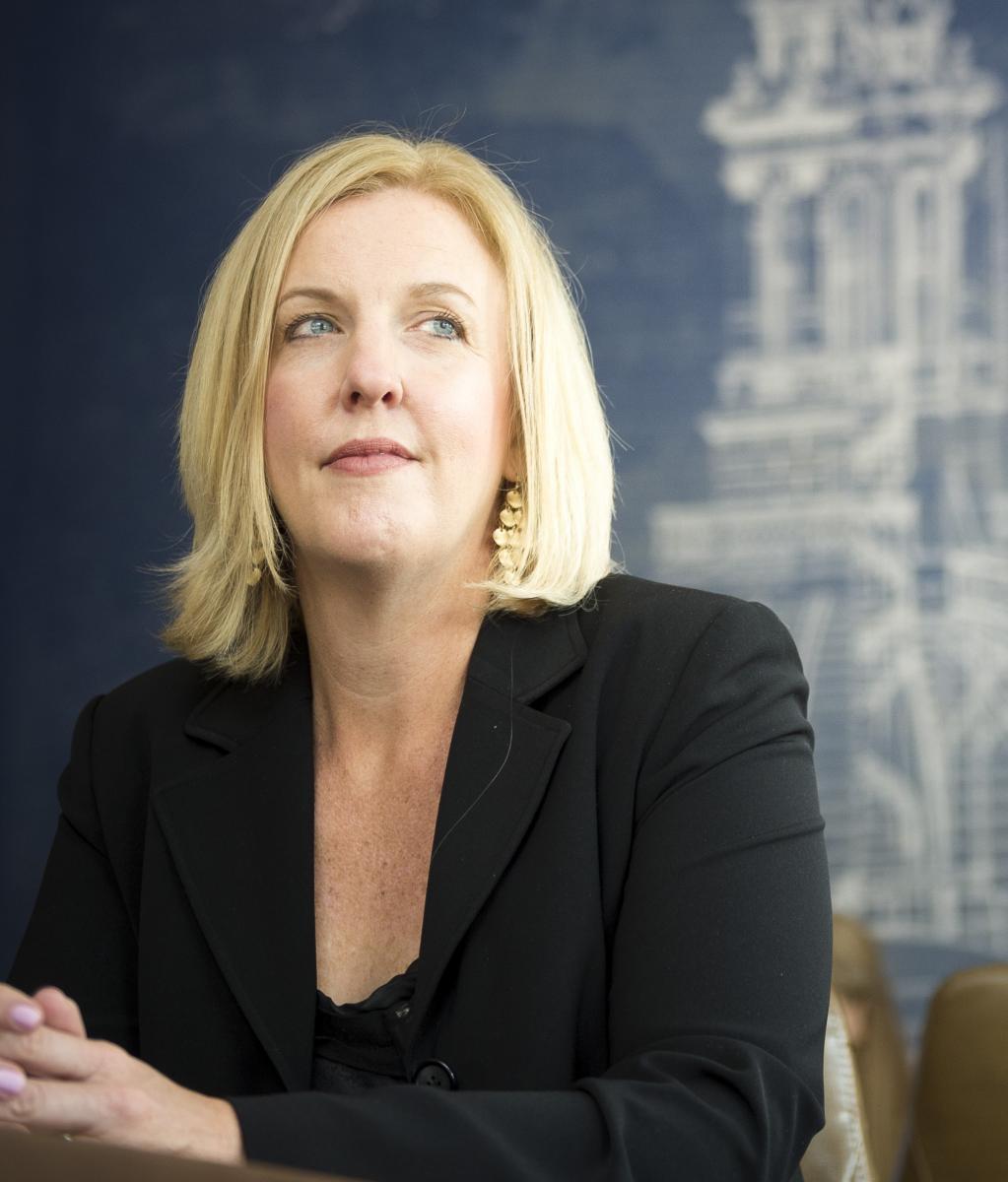
Women In Energy: Abigail Ross Hopper
The Women in Energy series is a joint project between USEA and USAID that was developed out of USEA’s Engendering Utilities Partnership, a program funded by USAID to improve gender policies and gender outcomes at their respective organizations.

Every month we feature a woman who has shown exemplary leadership. We want to showcase your story this month. The women among you come from diverse backgrounds and roles, and they bring with them a unique perspective to gender equality within the energy sector.

Abigail Ross Hopper is the President and CEO of the Solar Energy Industries Association (SEIA), the national trade organization for the U.S. solar industry. She oversees all of SEIA's activities, including government affairs, research, communications, and industry leadership, and is focused on creating a marketplace where solar constitutes a significant percentage of U.S. electricity generation.
Before joining SEIA, Abby served as Director of the Department of Interior's Bureau of Ocean Energy Management, the Director of the Maryland Energy Administration, Energy Advisor to Maryland Gov. Martin O’Malley, and Deputy General Counsel with the Maryland Public Service Commission.
*USEA does not alter the substance of the responses from the women featured. The answers are their own.
Women in Energy Interview Questions
How have your education and career path led you to where you are now?
"While I’m a lawyer by training, I’ve spent most of my career in public service. Before joining SEIA, I led the Bureau of Ocean Energy Management, where I was responsible for managing hundreds of people and focused, among many other things, on accelerating the growth of the U.S. offshore wind program. And before that, I was the director of the Maryland Energy Administration and deputy general counsel for the Maryland Public Service Commission.
Throughout my career, I was often the only woman at the table. I know many other women are all too familiar with this experience, and I’m doing everything I can to make sure women, people of color, and the LGBTQ community have access to the same opportunities as men. The goal now is to prevent future generations from facing the same barriers I encountered as a woman in a male-dominated industry."
Over the course of your career, have you witnessed changes in the sector that have launched more women into leadership positions?
"I’ve noticed that unless we make diversity and inclusion a priority and core value, we won’t see changes. We must be intentional about this work, and through concerted efforts like the Diversity Challenge we issued this spring and a practical how-to guide that meets energy companies and organizations where they’re at in order to drive change. I’m a big proponent of action, and the small wins are beginning to compound and shift what this industry looks like.
Over the past decade, we’ve helped to change the energy industry. In the 2020s, what we’re calling the Solar+ Decade, we’re going to continue to create countless new opportunities and transform the makeup of our industry.
We are in unprecedented times. Never has there been this much momentum to address climate change and there’s a renewed interest in the energy sector. I hope the industry will use this excitement to attract and recruit more diverse talent to the industry."
Technology is transforming the traditional utility business model into a more modern interactive grid. Some utilities view this transformation as an opportunity to focus on change management and diversity. Research provides compelling evidence that inclusion and diversity unlock innovation and drives better business performance. What, if anything, is your organization doing to attract, retain, and promote more women into senior management positions to respond to the dramatic industry transformation?
"When I started at SEIA, I identified diversity and inclusion as one of my top priorities. This work is action-oriented and based on realistic steps that companies can take to begin working in this area.
SEIA’s recent Diversity Study found that the solar industry has a long way to go but we have acknowledged that truth and are taking steps to address this. Alongside this study, we hosted a roundtable and released a best practices guide to give companies a starting point for working on these issues. We also launched a Diversity Challenge to get other energy industry companies involved as equity and inclusivity aren’t issues unique to the solar industry. More than 80 companies signed onto the challenge. The next step is to get energy companies to set concrete action plans to address this issue.
We also remain forward looking. In the Solar+ Decade, we will rapidly deploy hundreds of gigawatts of solar and grow the solar workforce to more than 600,000 professionals. We must ensure that all Americans have access to these opportunities and that our companies work to expand the applicant pool to include more diverse candidates.
Our success as an industry depends on it."
Are talented women within your organization making it to top leadership positions? Why/why not?
"At SEIA, we now have more than a dozen women in senior management roles, but this did not happen overnight. It began by recognizing the problem and taking active steps toward this outcome. One of these steps involved completing a cultural assessment to ensure that we’re creating an inclusive environment and evaluate our own efforts to hire and retain diverse candidates.
The results of this assessment show that much like the solar industry itself, we have work to do. We have now implemented a comprehensive strategy for hiring diverse candidates and fostering a safe and equitable work environment. I am working to not just create an environment where women and people of color are welcomed, but an environment where we can have these difficult conversations with everyone in a safe and effective way. It is equally as important that men are a part of the conversation and that they know what steps they must take to help maintain that culture of openness and inclusivity."
What actions should the energy and electricity sector be focused on to accelerate change, increase diversity, and foster a better gender balance in the boardroom?
"Solar is ushering in a clean energy revolution that is fundamentally changing the way our society is powered. In order to make widespread change, we need buy-in from organizations across the industry. This will require organizations to take proactive initiatives to hire, employ and uplift underserved populations.
It will require leaders to seek talent from new populations and make investments in training and recruiting in low-income communities, while creating new advancement opportunities for solar workers, regardless of their gender, ethnicity, sexual orientation, or abilities.
But most importantly, none of this can be done until energy leaders across the industry act to make diversity and inclusion an urgent priority.
That is why I am constantly promoting diversity in our industry. Whenever I speak in public, I make it a point to bring diversity into the conversation, no matter the topic. We cannot achieve our goals for the Solar+ Decade without diversity, and I plan to continue this fight until our industry is representative of the population it serves."
